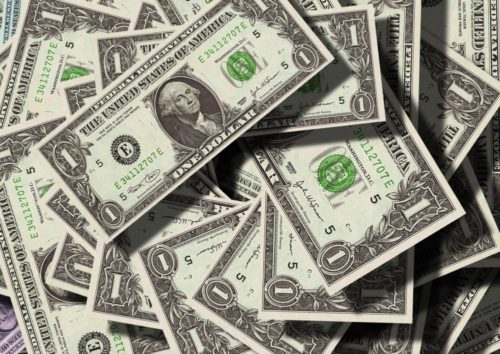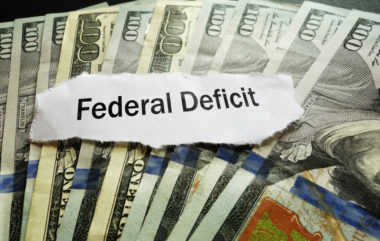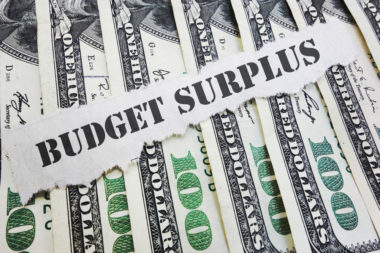In the war between paper and plastic, the latter is the clear victor, with many wondering how much longer we’ll be using physical cash. While many people still use cash for vending machines and amateur poker games, it doesn’t carry as much power as your credit or debit card, which is accepted almost everywhere. However, that “almost” is very important.
You should have some cash on you, at least for emergency situations. Many consumers are stumped when it comes to knowing the amount of cash that is adequate to carry on their person. The following are common suggestions for how much cash to carry on you:
- $200: Carrying $200 in cash is a suggestion that comes up often on the web. Many believe that this amount of money is enough to take care of any standard emergency;
- Enough to get home: Many believe that you put yourself at risk by carrying loads of cash, so just keep enough with you to be able to get back home — whether that be $20 for gas, or $35 for a taxi cab across town;
- 120% of what it costs to fill your tank: In this method, you have enough to fill your tank, and you are left with excess in case you need other essentials.
Table of Contents
Cash Carrying Considerations
The exact answer to how much cash you should carry depends on a couple of important factors. Tailor each consideration to your personal situation.
Where Do You Live?
Larger metropolises are more likely to have retailers that are technologically integrated. They likely have more stores with mobile payment options and more ATMs in the event that you really need cash. Smaller towns generally have more independent businesses that cannot afford to pay credit card processing fees, let alone the cost of the technology necessary to accept mobile payments. ATMs might be less common as well.
If you need cash, one alternative to an ATM is getting cash back; many places that accept debit cards will “overcharge” you for a purchase and then give you the extra in cash. As long as you know you have the money in your account, and you know the merchant does cash back, this can be a way to circumvent ATM fees, such as ATM withdrawal fees; just be aware of your bank’s overdraft fees.
Similarly, you should be aware of what the crime rate is where you live. When it comes to the contents of the modern wallet, cards can be easily deactivated if stolen. Cash, not so much. Although pickpocketing has died out, it’s still important to be wary of the various kinds of theft attempts. Specific purchases might require you to carry around a few hundred dollars, but you don’t want to be walking around with that amount regularly if you couldn’t afford rent without it.
Are You With the Majority?
There are four major credit cards: Visa, American Express, Discover, and Mastercard. All have their advantages and disadvantages, but American Express and Discover are accepted less frequently than the other two. If you use American Express, Discover, or a credit card from a smaller company, then you might want to carry more cash on you.
You can usually find an ATM, but being charged to access your own money is annoying. If you’re with a nationwide bank, then you’ll generally have no problem finding a corresponding ATM somewhere nearby.
However, if you belong to a local bank or credit union, it will be inconvenient to constantly travel to one or two spots to get cash. It will also be impossible to avoid ATM fees if you’re traveling away from your bank’s base of operations, so you should generally carry more cash with you if you belong to a local bank.
How Do You Handle Social Spending?
You and your friends might rotate who pays for certain regular expenses: e.g. a case of beer, pizza, movie tickets. However, if for whatever reason this isn’t possible, you’ll frequently find yourself splitting the cost of the items — this is difficult if you all only have cards. There are apps out there that allow you to pay friends back digitally, but the convenience of cash cannot be matched in this situation.
However, unless you and your friends are planning on going in together on a car or some other big-ticket item, splitting the cost of items usually means that your portion is relatively small. If you’re only carrying cash because of the possibility that you might have to split a bill with a friend, carry smaller bills and a smaller amount in general.
Smaller bills are also good for hassle-free tipping. Although ridesharing platforms such as Uber allow for tipping within the app, bellhops rarely have a card reader hand, and you can’t just slide your credit card to the host at a restaurant when you’re trying to secure a table. If you find yourself in these sorts of situations frequently, it’s a good idea to carry some $1and $5 bills.
All of this considered, the average Jane should probably carry $20, preferably including some smaller bills. This amount will vary depending upon the factors listed above, but it’s clear that cash isn’t dead yet. While it might disappear soon, it can ease your financial purchases to keep a little green in your wallet.
How to Carry Cash
If you are planning to carry additional cash, you need to come up with a viable way to keep it on your person. The following tips are ways to carry cash the most efficiently:
- Purchase a wallet or money clip: You don’t want to keep crumpled-up money loose in your pocket because it can be easy to misplace or steal;
- Stick to larger bills: The fewer bills you keep on you the better. It can be uncomfortable to sit on a large number of small bills, and it can break down your wallet or money clip faster;
- Bring small bills for tipping: Restaurants, ride-hailing apps, and other various services generally have tipping etiquette. Having some smaller bills can ensure that you don’t over or under tip.
Image source: https://www.pexels.com/





